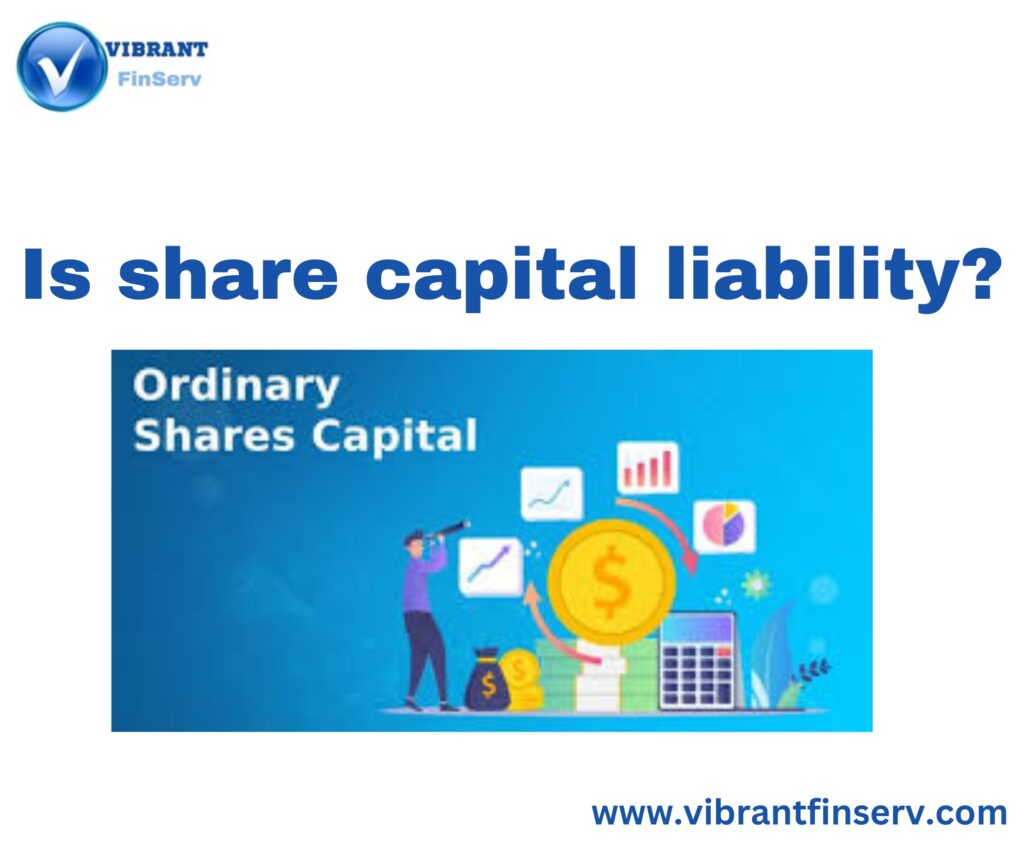Share Capital Liability,
Is Share Capital Liability?
When discussing the financial structure of a company, the term “share capital” frequently arises. It represents the funds raised by a company through the issuance of shares to shareholders. While share capital is an essential component of a company’s equity, its classification as liability or not can be a source of confusion. This article aims to clarify the nature of share capital in relation to liability.
Understanding Share Capital
Share capital can be defined as the total value of shares issued by a company to its shareholders. It is divided into two primary categories:
- Equity Shares (Common Shares): These shares represent ownership in the company and come with voting rights. Shareholders may receive dividends based on the company’s profitability but do not have guaranteed returns.
- Preference Shares: These shares offer preferential treatment in dividend payments and capital repayment during liquidation. However, preference shareholders usually do not have voting rights.
The Nature of Share Capital
Equity vs. Liability
Share capital is classified as equity, not liability. Equity represents the ownership interest in the company, while liabilities represent the company’s obligations to external parties. Here’s a breakdown of the distinctions:
- Equity (Share Capital): Represents ownership and residual claims on assets after all liabilities have been settled. Shareholders are entitled to dividends and the right to vote on key corporate matters, including the election of the board of directors.
- Liabilities: Represent obligations that a company must fulfill, such as loans, accounts payable, and other debts. Liabilities are settled over time through the transfer of economic benefits, typically cash.
Why Share Capital is Not a Liability
- Ownership Rights: Shareholders, as owners, have a claim on the company’s assets and profits. They are not creditors; thus, their investment is fundamentally different from that of a lender.
- No Obligation for Repayment: Unlike loans, share capital does not require repayment. The company is not legally obligated to return the invested amount to shareholders unless it is being dissolved and assets are being liquidated.
- Profit Distribution: While liabilities require fixed interest payments, equity allows for dividend distributions based on the company’s profitability. The decision to declare dividends is at the discretion of the board of directors.
- Risk Bearing: Shareholders bear the risk of the company’s performance. If the company incurs losses, equity holders are the last to receive compensation after all debts and liabilities have been settled.
Exceptions to Consider
While share capital is fundamentally considered equity, it is essential to note that some financial instruments can blur the lines between equity and liability:
- Convertible Bonds: These are debt instruments that can be converted into shares. While they are classified as liabilities initially, their conversion can affect the equity structure.
- Redeemable Preference Shares: These shares can be redeemed (bought back) by the company after a certain period. While they are equity instruments, their redeemable nature can present liability characteristics.
FAQs:
For further details access our website https://vibrantfinserv.com/
